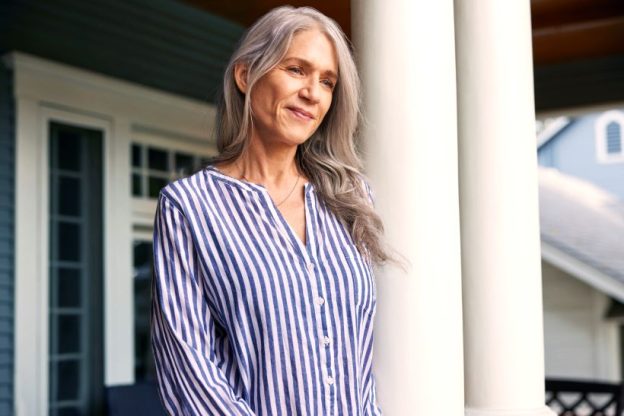
Insomnia increases depression risk for breast cancer survivors
Breast cancer survivors face a high risk of major depressive disorder, also known as clinical depression, particularly if they also have insomnia, according to findings from a new study of Kaiser Permanente members.
“We determined that the risk of major depression disorder was markedly higher in breast cancer survivors than in a matched group of women without cancer, even after accounting for factors like age, pre-existing medical and history of psychosocial conditions, demographics, and antidepressant use,” said the study’s senior author, Reina Haque, PhD, MPH, a cancer epidemiologist at the Kaiser Permanente Southern California Department of Research & Evaluation. “And if breast cancer survivors also had insomnia, their risk of clinical depression was further elevated—9 times higher—compared with the group of women without cancer and without insomnia.”
The study was published in October 2025 in SLEEP.
Study establishes new understanding about cancer survivorship
This study is one of the first to show that depression risk is markedly higher in older adult, long-term breast cancer survivors compared to an age-matched cohort of women without cancer, and to establish insomnia as a major exacerbating factor in this population.
“Cancer therapies are advancing, and more and more cancer patients are surviving longer,” Dr. Haque said. “This kind of research, about people who have already fought against cancer, is critically important to improving their quality of life.”
Researchers recruited and followed 636 female study participants, who were Kaiser Permanente Southern California members. Of those, 315 were female breast cancer survivors, and 321 were women without cancer. None of the participants had depression at their baseline interview when the study started. Researchers then tracked the patients for over 32 months.
More than 300 breast cancer survivors included in study
The study found:
- The risk of clinical depression was over 4 times higher in breast cancer survivors than in the age-matched cohort. This risk persisted even after accounting for factors like age, pre-existing conditions and psychosocial history.
- Breast cancer survivors with moderate or severe insomnia had a more than 9-fold increased risk of clinical depression compared to the age-matched cohort without insomnia.
- The clinical depression incidence rate was 14% in breast cancer survivors with insomnia, double the rate in survivors without it, and 7 times higher than in the age-matched cohort with insomnia.
- In the age-matched cohort, insomnia had little influence on the risk of clinical depression.
Researchers urge reprioritization of insomnia screening
The study’s lead author, Michael R. Irwin, MD, a professor at the Semel Institute for Neuroscience and Human Behavior, University of California, Los Angeles, said that despite evidence that insomnia treatment can prevent depression, clinical management of breast cancer survivors often does not routinely involve screening and identification of insomnia. Further, even if insomnia is identified, breast cancer survivors with insomnia are not prioritized for insomnia treatment, which is needed to prevent depression.
“This study provides a compelling rationale and urgent need to screen for insomnia in cancer survivors, and to deliver insomnia treatment to prevent depression in breast cancer survivors,” he said.
In addition to Dr. Haque and Dr. Irwin, other authors on this study included Richard Olmstead, PhD, of UCLA; and Lie Hong Chen, DrPH, of the Department of Research & Evaluation.





